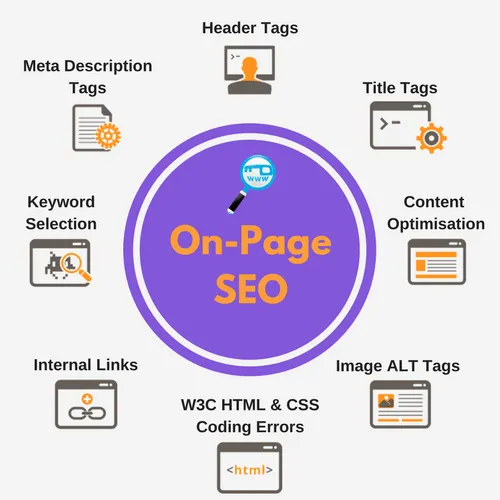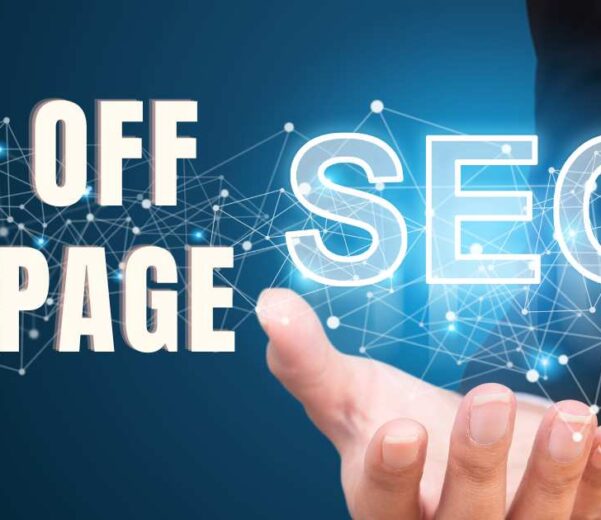Ultimate Guide to On Page SEO for Website Visibility
Maintaining a lead in the dynamic and always changing world of digital marketing is essential. One of the foundational aspects that can significantly impact your website’s visibility and search engine rankings is on page SEO. As search engines become smarter and user preferences shift, mastering on content optimization techniques is more crucial than ever. In this comprehensive guide, we’ll delve into the world of optimizing for search engine, exploring its importance, key components, and best practices.

Understanding On-Page SEO
Semantic SEO refers to the optimization of individual web pages to enhance their search engine rankings and visibility. Unlike off-page SEO, which focuses on external factors like backlinks, semantic SEO revolves around optimizing the content, HTML, and elements within a web page itself. It’s about providing both search engines and users with the best possible experience, making it easier for them to understand the content’s relevance.
The Significance of On-Page SEO
In the vast digital landscape, where countless websites compete for attention, content optimization acts as your digital storefront’s foundation. It determines how search engines interpret your content and how users engage with it. A well-executed semantic SEO strategy can lead to:
SERP ranking
Search engines reward websites that offer valuable, relevant content. By optimizing on-page elements, you increase the chances of your pages ranking higher in search results.
User Experience
SEO techniques aren’t just about appeasing search engines; it’s about creating a seamless experience for your visitors. This leads to longer dwell times, lower bounce rates, and increased conversions.
Organic Traffic
When your pages rank higher, they’re more likely to be clicked by users, resulting in increased organic traffic to your website.
Key Components of On-page SEO
Keyword Optimization
Conduct thorough keyword research to identify the terms your audience uses to search for content. Make sure to naturally incorporate these keywords into your content, headings, and meta tags.
Content Optimization
Content is king. Create informative, engaging, and valuable content that addresses users’ needs. Although long-form content frequently does well, prioritize quality above quantity.
Title Tags For On-Page SEO
Make each page’s title tags distinct and evocative. Include your target keyword to give search engines a clear understanding of your page’s topic.
Meta Descriptions
While not a direct ranking factor, compelling meta descriptions can entice users to click on your link. Keep them concise, relevant, and action-oriented.
Header Tags
To organize your content, use header tags (H1, H2, H3, etc.).This not only makes it easier for users to read but also helps search engines comprehend your content’s hierarchy.
URL Structure
Create clean and descriptive URLs that give users and search engines an idea of what the page is about.
Internal and External Links
Incorporate relevant internal links to other pages on your site to guide users and distribute link equity. Additionally, use reputable external links to support your content’s credibility.
Image Optimization
Optimize images by compressing them without compromising quality. Use descriptive file names and alt text to make images accessible to search engines.
Must Read About The Power of SEO: Why Choosing the Right SEO Agency Matters
Best Practices for On-page SEO
Mobile-Friendliness: With mobile devices driving a significant portion of web traffic, ensure your pages are responsive and offer a seamless experience on various screen sizes.
Page Speed
Slow-loading pages can increase bounce rates and deter users. Optimize your website’s speed by minimizing code, compressing images, and utilizing browser caching.
User Experience (UX)
Understand the intent behind users’ search queries and tailor your content to provide the most relevant answers. This improves user satisfaction and dwell time.
Regular Updates for on-page SEO
Keep your content fresh and up-to-date. Search engines favor recent and relevant content, demonstrating your site’s authority in its niche.
Avoid Keyword Stuffing on Page SEO
While keywords are essential, avoid overusing them unnaturally. Focus on readability and user experience.
Schema Markup
Implement schema markup to provide search engines with additional context about your content, enhancing the chances of rich snippets in search results.
Conclusion
Search engine optimization lays the foundation for your website’s success in the digital realm. By optimizing your content and page elements, you create a user-friendly experience while signaling to search engines that your content is valuable and relevant. Keep in mind that semantic SEO is not a one-time task; it requires continuous monitoring, adaptation, and improvement.






